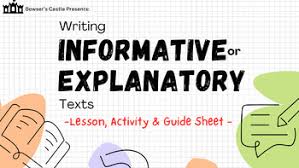
What Is Social Emotional Learning?
Social emotional learning (SEL) is the process by which children develop skills to understand and manage their emotions, make responsible decisions, and build healthy relationships. It is essential for students to master these skills to succeed in school and life. SEL includes five main skills: self-awareness, self-management, social awareness, responsible decision-making, and relationship skills.
Understanding Self-Awareness
Self-awareness is the ability to recognize and understand one’s own emotions, personal goals, and values. This skill is crucial for students to develop as it helps them understand their strengths and weaknesses, set realistic goals, and make informed decisions. To foster self-awareness, educators can use reflective journaling, identifying and labeling emotions, and setting personal goals as activities.
Building Self-Management
Self-management is the ability to regulate one’s own emotions and behaviors. This skill is vital for students to develop as it helps them manage stress, stay focused, and make responsible choices. Educators can use mindfulness exercises, emotional regulation strategies, and goal setting and planning as activities to help students build self-management skills.
Cultivating Social Awareness
Social awareness is the ability to understand and empathize with others. This skill is essential for students to develop as it helps them build strong relationships, communicate effectively, and resolve conflicts. Educators can use perspective-taking exercises, active listening, and conflict resolution role-plays as activities to foster social awareness.
Developing Responsible Decision-Making
Responsible decision-making is the ability to make informed and responsible choices. This skill is crucial for students to develop as it helps them navigate complex situations, prioritize tasks, and achieve their goals. Educators can use problem-solving scenarios, decision-making role-plays, and reflective decision-making as activities to help students develop responsible decision-making skills.
Building Relationship Skills
Relationship skills are the ability to build and maintain healthy relationships. This skill is vital for students to develop as it helps them communicate effectively, resolve conflicts, and build strong bonds with others. Educators can use communication exercises, conflict resolution role-plays, and team-building activities as activities to foster relationship skills.
Curriculum and Resources
Educators can incorporate SEL into their curriculum using a variety of resources. Books such as “Handbook of Social and Emotional Learning” and “Building Academic Success on Social and Emotional Learning” provide comprehensive overviews of SEL. Worksheets like “SEL Skills for Students” and “Social and Emotional Learning in the Classroom” offer practical activities for students. The Collaborative for Academic, Social, and Emotional Learning (CASEL) provides a guide for schoolwide SEL and “Teaching the Whole Child” offers a comprehensive approach to SEL.
Conclusion
Social emotional learning is a vital component of a student’s education. By incorporating SEL into the curriculum, educators can help students develop essential skills for success in school and life. This guide provides a comprehensive overview of SEL, including definitions, activities, and resources.
Frequently Asked Questions
Q: What is the importance of social emotional learning?
A: Social emotional learning is essential for students to develop skills to understand and manage their emotions, make responsible decisions, and build healthy relationships, which are crucial for success in school and life.
Q: How can educators incorporate social emotional learning into their curriculum?
A: Educators can incorporate SEL into their curriculum using a variety of resources, such as books, worksheets, and guides. They can also use activities like mindfulness exercises, perspective-taking exercises, and role-plays to foster SEL skills.
Q: What are some common challenges educators face when teaching social emotional learning?
A: Common challenges educators face when teaching SEL include limited resources, lack of training, and difficulty in integrating SEL into existing curriculum. However, with the right resources and support, educators can effectively teach SEL skills to their students.
Q: How can parents support social emotional learning at home?
A: Parents can support SEL at home by modeling healthy relationships, encouraging open communication, and engaging in activities that promote emotional regulation and empathy. They can also work with educators to ensure consistency in SEL instruction across school and home environments.


